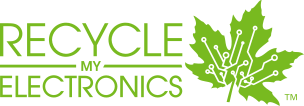Business FAQs
EPRA Newfoundland and Labrador is a not-for-profit industry-led organization that operates a government-approved end-of-life electronics recycling program throughout the province. Residents and businesses can drop off their unwanted electronics free of charge for safe, secure and responsible recycling at an EPRA Newfoundland and Labrador drop-off location.
Businesses typically generate larger volumes of end of life electronics than residential users. To ensure that we can effectively assist with your recycling needs, please consider the below:
- For smaller loads (think just a few pieces like a box of laptops, monitors, etc.) this can de dropped off at any Recycle My Electronics™ drop off location.
- To find the closest drop-off site to you, please visit Where Can I Recycle.
- For large loads of ICI end of life electronics, please Book My Pick Up to determine how we can effectively assist with your recycling needs.
- We can help direct your materials to the appropriate location and ensure that a scheduled time is allocated so that staff are available on site to receive your products in an orderly manner.
The list of products accepted under the EPRA NL program are mandated by the MMSB. See What Can I Recycle? for more information.
Absolutely. The EPRA Newfoundland and Labrador program is designed to manage end-of-life electronic products that have exhausted their reuse potential. If your electronic items are not at the end of their useful life, you are encouraged to explore reuse opportunities including donating them to family members, friends or authorized Reuse Organizations.
EPRA only works with recyclers who have been verified under the national Electronics Recycling Standard (ERS), which was designed by the electronics industry to ensure that end-of-life-electronics are managed with appropriate environmental, health, and safety controls. This means that all EPRA verified recyclers must be actively processing material that is entrusted to them by EPRA. Further, our Recycler Qualification Office (RQO) verifies the recyclers against the ERS requirements. For more information, visit www.RQP.ca
Consumers and businesses are responsible for ensuring that all personal data is removed from their electronic devices, prior to bringing them to one of our drop-off locations. If you are unsure how to do this, contact your manufacturer for more information. While EPRA Newfoundland and Labrador requires that all of our recyclers protect data on end-of-life electronics from unauthorized access or theft, it is your obligation to protect your personal information. EPRA Newfoundland and Labrador does not accept liability for data or any other digital content that is left on electronic products collected at our drop-off locations.
EPRA Newfoundland and Labrador is funded through Environmental Handling Fees (EHF) that are applied on the sale of all new electronic products regulated in Prince Edward Island. It’s not a tax, nor is it a refundable deposit. The EHF on each item in the program is based on the cost to manage and recycle the materials contained in the product as well as the cost of collection, transportation and administration (includes education, awareness, and audits).
EPRA/ Recycle My Electronics™ programs manage end-of-life electronics recycling. Once collected, items are sent to an EPRA approved recycling facility for sorting, dismantling, and downstream management. Materials are separated into different streams so they can be re-configured into the manufacturing process.
